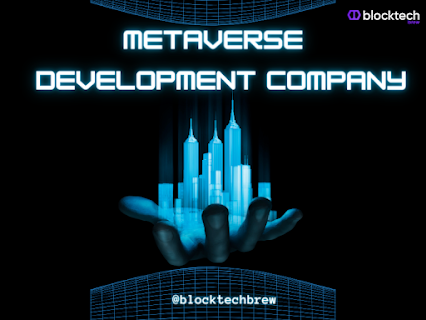Exploring the Metaverse: Unraveling the Realm of Virtual Worlds
In recent years, the term "Metaverse" has become a buzzword in technology and gaming communities. Initially popularized in science fiction literature, the Metaverse now stands as a thrilling prospect, merging the physical and digital worlds into a cohesive and immersive experience. But what exactly is the Metaverse, and how does this virtual world work? Let's embark on a journey to understand the concept and implications of the Metaverse.
Defining the Metaverse
The Metaverse is a vast and interconnected virtual universe, comprising multiple augmented and virtual reality spaces, where users can interact with digital environments and each other. Think of it as a collective, persistent virtual realm, accessible through various devices such as VR headsets, augmented reality glasses, and traditional screens. It's a space where individuals can explore, socialize, create, and experience countless activities in a shared digital ecosystem.
Characteristics of the Metaverse
Persistence: Unlike traditional video games or virtual experiences, the Metaverse maintains continuity over time. Everything created or altered by users in this digital universe persists, contributing to the ongoing evolution of the virtual world.
Interconnectivity: The Metaverse is not a solitary entity; rather, it's an amalgamation of interconnected virtual spaces, platforms, and applications. Users can seamlessly move from one space to another, creating a cohesive experience.
User-Created Content: User-generated content plays a significant role in shaping the Metaverse. Participants can contribute to the development of the virtual world, designing structures, landscapes, and even social systems.
Social Interaction: At its core, the Metaverse is a social environment. Users can interact with others in real-time, forging connections, collaborating, and engaging in shared experiences, blurring the lines between the digital and physical worlds.
How Does the Metaverse Work?
The Metaverse's functionality rests upon several critical components:
Hardware and Devices: The Metaverse is accessible through various devices, including VR headsets, AR glasses, computers, smartphones, and gaming consoles. These devices enable users to engage with the virtual world and experience it in different ways.
Internet Infrastructure: High-speed and reliable internet connectivity are crucial for the Metaverse to function efficiently. The seamless flow of data between users and the virtual environment is essential for a smooth and immersive experience.
3D Rendering and Graphics: Cutting-edge 3D rendering and graphics technologies bring the virtual world to life, enhancing visual fidelity and immersion. This allows users to perceive the Metaverse as a realistic and interactive space.
Decentralized Systems: The Metaverse often utilizes decentralized systems, like blockchain technology, to manage virtual assets, ownership, and transactions securely. This fosters a transparent and user-centric economy within the virtual realm.
Artificial Intelligence: AI algorithms contribute to the Metaverse's dynamism by creating non-player characters (NPCs) and enabling virtual entities to interact with users intelligently. AI also assists in personalizing the user experience and content recommendations.
Use Cases and Implications
Gaming and Entertainment: Gaming experiences within the Metaverse go beyond conventional gaming, offering immersive, interconnected worlds where players can explore, compete, and cooperate on an unprecedented scale.
Work and Education: The Metaverse has the potential to revolutionize remote work and education. Virtual offices, classrooms, and conferences can facilitate global collaboration and foster engaging learning environments.
E-commerce and Retail: Virtual marketplaces in the Metaverse can transform the retail industry, offering personalized shopping experiences and innovative ways to interact with products before making a purchase.
Social Interaction: The Metaverse presents unique opportunities for people worldwide to connect, collaborate, and socialize in novel ways, transcending geographical boundaries.
Conclusion
The Metaverse represents a groundbreaking evolution in the virtual world, blurring the lines between reality and imagination. With its interconnectivity, user-generated content, and social nature, this virtual universe offers infinite possibilities for entertainment, education, and social interaction. However, as the Metaverse continues to develop, careful consideration of privacy, security, and ethical implications will be necessary to ensure a positive and inclusive digital future. The journey to this immersive and interconnected world has only just begun, and the potential it holds is both exciting and transformative.
Tap Into The Metaverse Gaming Industry With Us
As a reputable Metaverse game development company, we offer full design and Metaverse game production services for immersive virtual reality games for many platforms. Our team is made up of some of the best Metaverse app developers available.
Our core team is made up of devoted technology enthusiasts with in-depth knowledge of the market who can help you choose the best target market and platform for your Metaverse product and build a profitable experience.




Comments
Post a Comment